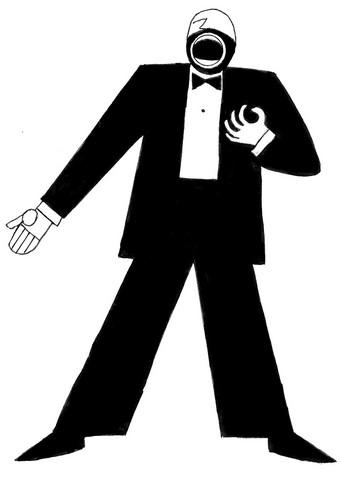False Advertising
"Michael Maniaci makes his Philadelphia debut performing Handel opera arias as they were meant to be sung: by a true male soprano. Don’t miss this consummate artist and rising star of the opera world in his first Philadelphia performance – and possibly his only appearance in such an intimate setting." (Italics mine)
Yes, Handel would have expected a "true male soprano"...castrated of course. This is a little pet-peeve of mine: people saying that countertenors or male sopranists are the same voice type as the 18th century castratos. The operatic countertenor is a modern invention intended to solve the problem of casting in operas that would have originally used castrati.
There are a few fundamental differences in vocal colour between countertenors and castratos (as far as we can tell since the last one died in the early 20th century and left recordings of questionable quality):
Countertenors lack the depth of sound in the low register that castrati had. Modern countertenors have to constantly negotiate the chest/head break in the voice. Although good countertenors can get some heft into the lower range, they have trouble getting power in the passaggio because they are trying to finesse their way into the high range. Think of the powerful middle-low voice and amazing flexibility of someone like Marilyn Horne. That's much closer to what a castrati was able to do. In addition, castrati had remarkable breath control due to their adult male ribcages and child size larynxes (i.e. lots of air going through a small space).
Also, in the 18th century, falsettists existed but not on the operatic stage. They were primarily church singers, probably closer in sound to the hooty male altos you hear in the Anglican church. Furthermore, when a composer like Handel couldn't book a castrati for an opera, a female singer would take over the role, not a countertenor. The rise of gifted singers like Andreas Scholl and David Daniels has allowed opera companies to again cast male roles for male singers. Theatrically the advantages of this are obvious. Yet, you cannot say that what Daniels does vocally is the same as what Farinelli was doing.
Incidentally, I was unable to attend to Maniaci concert due to a rehearsal across town. I would have liked to hear "a true male soprano".

